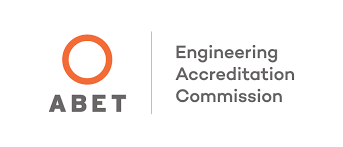Undergraduate
From developing more sustainable approaches to fuel and energy production to devising new treatments for life-altering illnesses and injuries, we train our graduates to meet the challenges of the 21st century with passion and innovation.
Chemical engineers have helped develop atomic science, polymers, paper, dyes, drugs, plastics, fertilizers, foods, petrochemicals, vaccines, new methods for carbon capture, and much more.
In addition to jobs in the oil, gas, and chemical fields, our graduates routinely work in a range of industries, including pharmaceuticals, food and beverage, semiconductor manufacturing, pulp and paper, mineral processing, environmental protection, defense, nuclear energy, and even financial services.
Wherever you want to make a difference, chemical engineering can take you there.
Curriculum
Students typically enter the department after completing their first year of study in Virginia Tech's Engineering Education program. To gain the Bachelor of Science degree in chemical engineering, students must earn of 128 credit hours of foundational courses and electives. To learn more, explore our course descriptions.
The Bachelor of Science program in Chemical Engineering is accredited by the Engineering Accreditation Commission of ABET under the commission’s General Criteria and Program Criteria for Chemical, Biochemical, Biomolecular and Similarly Named Engineering Programs.
Minors and study tracks
Because our program is grounded in chemistry, students routinely minor in that discipline. Other minors include mathematics, biomedical engineering, and green engineering.
To prepare our graduates to meet evolving global challenges, students may choose among three new study tracks:
- climate and energy solutions
- computational and data sciences
- healthcare technologies
These tracks allow graduates to tailor their degree to fulfilling careers in fields that have big impacts on the future.

Co-ops and internships
Our department offers a range of opportunities for co-operative education and internships that allow students to gain real-world work experience while earning their bachelor's degree.
Research
Most department faculty are actively engaged in research and routinely provide research experiences for undergraduates. Our students also conduct research with Virginia Tech Chemistry Department faculty.
Study Abroad
Virginia Tech students train to go beyond boundaries and be of service to the world. To help prepare our graduates for global impact, the department offers its summer Unit Operations Laboratory course at the Technical University of Denmark, located outside of Copenhagen, or at the Ruhr University of Bochum in Germany. The course runs for four weeks in the summer. Students apply through the university's Global Education Office and selections are made by chemical engineering faculty. For more information, contact Aaron Goldstein or Stephen Martin.
Student organizations
Virginia Tech has more than 800 student organizations on campus that offer social and professional development and rich experiences for everyone. Several student chapters of engineering and chemical engineering organizations are also active, including American Institute of Chemical Engineers at Virginia Tech, Alpha Chi Sigma at Virginia Tech, National Society of Black Engineers, Society of Women Engineers, and others.
Support
Our department provides robust academic advising services to help students thrive in the classroom. The College of Engineering offers a range of scholarships for transfer first-year engineering students, and the department offers dozens of scholarships to students on the sophomore level and above.
Choosing our major
Current Virginia Tech students who wish to declare Chemical Engineering as their major must apply during open enrollment. Learn about the process through our Engineering Education program.
Students transferring to Virginia Tech from another university must gain admission from the registrar and the College of Engineering. The undergraduate academic advisor can provide guidance and information on the process.
Accreditation
The Bachelor of Science program in chemical engineering is accredited by the Engineering Accreditation Commission of ABET. Learn more about our graduation rates and objectives.



